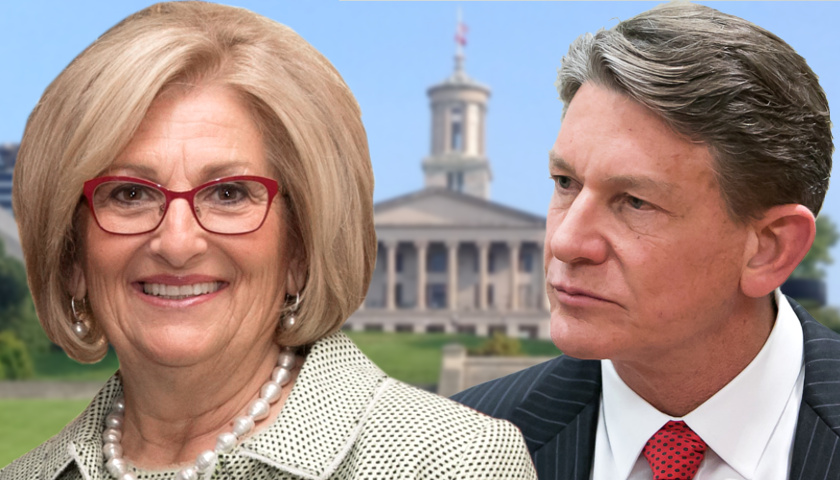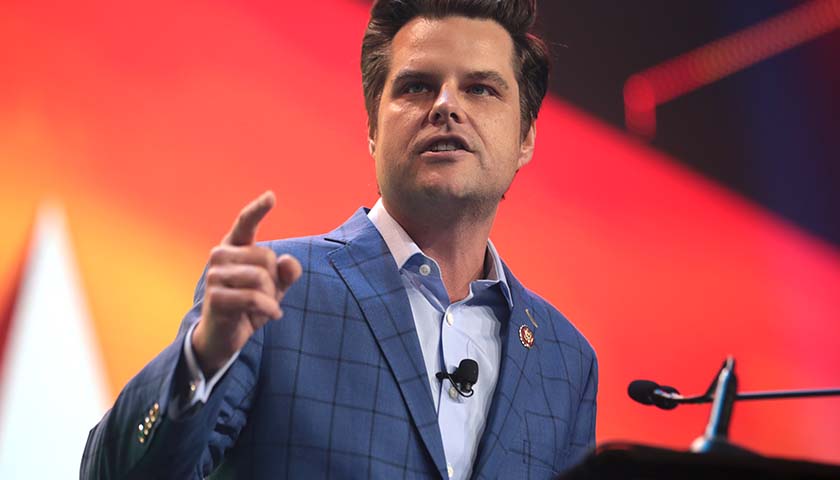If the first real salvos in the Randy Boyd versus Diane Black race for Governor are any indication, then the upcoming Republican primary battle will definitely be heated. The Black campaign leaked a May 9 internal campaign memo Thursday that showed her “surging ahead” of her Republican rivals. The survey, conducted by Grassroots Targeting, was conducted between May 4-6, 2018 and polled “800 registered Tennessee Republican primary voters matched directly to the voter file.” The polling firm then “modeled an enhanced voter file” to get their results.
The “enhanced model” polling shows Black with 40.6%, compared with 26.3% for rival Randy Boyd of Knoxville. Bill Lee had support from 11.4% while Beth Harwell was at 6.4%. Only 15.3% were recorded as “undecided.” That “undecided” figure is markedly lower than virtually every other poll of the race thus far.
The polling memo, from Grassroots Targeting principle Tim Saler, says Black has a substantial lead (43.2% to 21.9%) in the Nashville media market that she leads in Boyd’s home Knoxville market (40.3% to 29.5%). The polling memo made no mention of any West Tennessee results.
The Boyd campaign was quick to issue a response to the Black poll data from campaign spokesman Chip Saltsman:
“Congressman Black must clearly be worried about the message Tuesday’s Republican primary races across the country showed – in Trump’s Republican Party, voters are having a tough time giving a promotion to someone who’s been a part of creating the “DC swamp” in the first place.
The made up numbers they released are nowhere near what our numbers show – which is a clearly competitive two-person race.
The memo they released was not even prepared by their long-standing polling firm of record, but instead, a firm focused on producing “enhanced” models. It is no surprise they failed to release the actual responses from the 800 GOP primary voters they claim to have surveyed – but rather released a cooked number after it was ‘modeled’ by their campaign.
They also failed to share any of the questions asked, any of the cross tabs, or the interview dates or survey method. It’s silly to think that just 15 percent of all primary voters are undecided at this time – when almost every other poll we’ve seen shows that number in the 40s.
Tennessee Star political editor and conservative media strategist Steve Gill noted that tweaking results AFTER the polling is done, even if you call it “enhanced modeling”, will always raise questions about the legitimacy of a poll. “Enhanced modeling sounds kind of like using photo shop to enhance your appearance before posting a picture on some dating site,” Gill said. “And anytime we don’t have the chance to review actual top line information, the questions asked and order in which they were presented, the methodology of collecting the data (live call versus automated), etc. we will be skeptical of any results.”
When so many likely Tennessee Republican primary voters still don’t have a strong feel for most of the candidates, it is unlikely that 85% of voters have already made up their minds about how they plan to vote in the August 2 primary, Gill pointed out. “This is almost certainly going to be a volatile election season, with voters’ opinions today likely to shift several times over the next few months,” Gill pointed out. “In the West Virginia Senate Republican primary we had polls claiming that Blankenship was surging ahead in the final days, yet he finished a relatively distant third earlier this week. Those kind of swings are going to be the rule rather than the exception this campaign season.”




